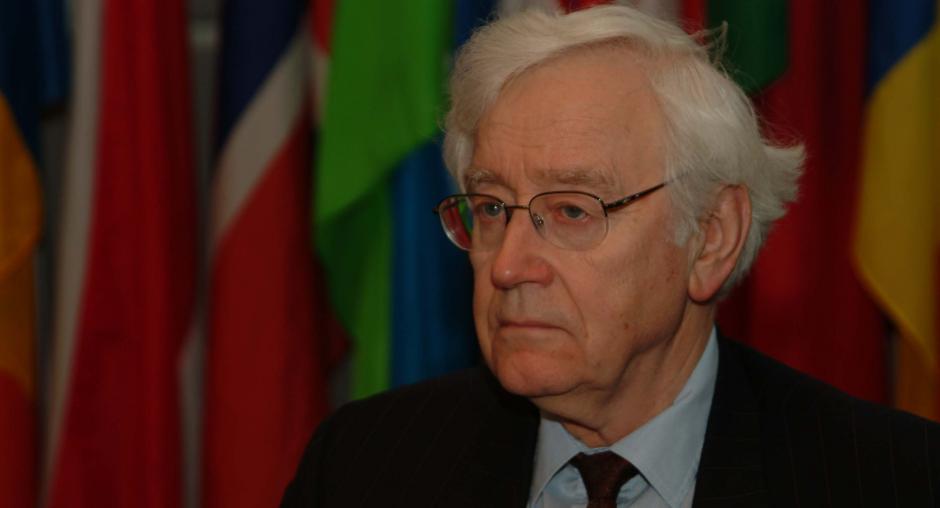Newsroom
OSCE High Commissioner visits Latvia to learn at first-hand about minority education reforms
VIENNA 27 February 2004

OSCE High Commissioner on National Minorities, Rolf Ekeus. (OSCE/Ayhan Evrensel) Photo details
VIENNA, 27 February - The OSCE High Commissioner on National Minorities, Rolf Ekeus, ended a three-day working visit to Latvia today, during which he discussed such matters as minority education reforms, naturalization and social integration, as well as other related issues.
During his visit, the High Commissioner met the Latvian President, Vaira Vike-Freiberga, as well as members of the Government, parliamentarians and representatives of various minorities in Riga.
"The matter of education is a core issue for me as High Commissioner. Preserving the quality of education for all students during this reform process must be the priority for all sides concerned", he said.
He expressed concern about recent tensions surrounding the minority education reform, and urged representatives from the authorities and minority groups, to improve dialogue on this issue.
"In a greater Europe we all tend to belong to one or another minority, and therefore we must stimulate the dialogue between different ethnic groups", the High Commissioner said.
He repeated his earlier recommendation to the Latvian Government to ratify the Council of Europe's Framework Convention on the protection of National Minorities, which Latvia signed in 1995. He also pointed out the importance of ratification as a step in Latvia's preparation for membership of the European Union.
Mr. Ekeus visited a minority language school to learn from students, teachers and parents about their stance on the proposed reform. He stressed the need for students from minority groups to learn the state language, which would facilitate integration while at the same time protect the use of the minority language and thus preserve the multicultural character of Latvia.
The issue under discussion in Latvia involves a new education law which calls for 60 per cent of secondary school classes in the country's Russian schools in future to be held in the Latvian language. The High Commissioner for National Minorities said he would remain engaged in a dialogue on these important issues.
During his visit, the High Commissioner met the Latvian President, Vaira Vike-Freiberga, as well as members of the Government, parliamentarians and representatives of various minorities in Riga.
"The matter of education is a core issue for me as High Commissioner. Preserving the quality of education for all students during this reform process must be the priority for all sides concerned", he said.
He expressed concern about recent tensions surrounding the minority education reform, and urged representatives from the authorities and minority groups, to improve dialogue on this issue.
"In a greater Europe we all tend to belong to one or another minority, and therefore we must stimulate the dialogue between different ethnic groups", the High Commissioner said.
He repeated his earlier recommendation to the Latvian Government to ratify the Council of Europe's Framework Convention on the protection of National Minorities, which Latvia signed in 1995. He also pointed out the importance of ratification as a step in Latvia's preparation for membership of the European Union.
Mr. Ekeus visited a minority language school to learn from students, teachers and parents about their stance on the proposed reform. He stressed the need for students from minority groups to learn the state language, which would facilitate integration while at the same time protect the use of the minority language and thus preserve the multicultural character of Latvia.
The issue under discussion in Latvia involves a new education law which calls for 60 per cent of secondary school classes in the country's Russian schools in future to be held in the Latvian language. The High Commissioner for National Minorities said he would remain engaged in a dialogue on these important issues.
